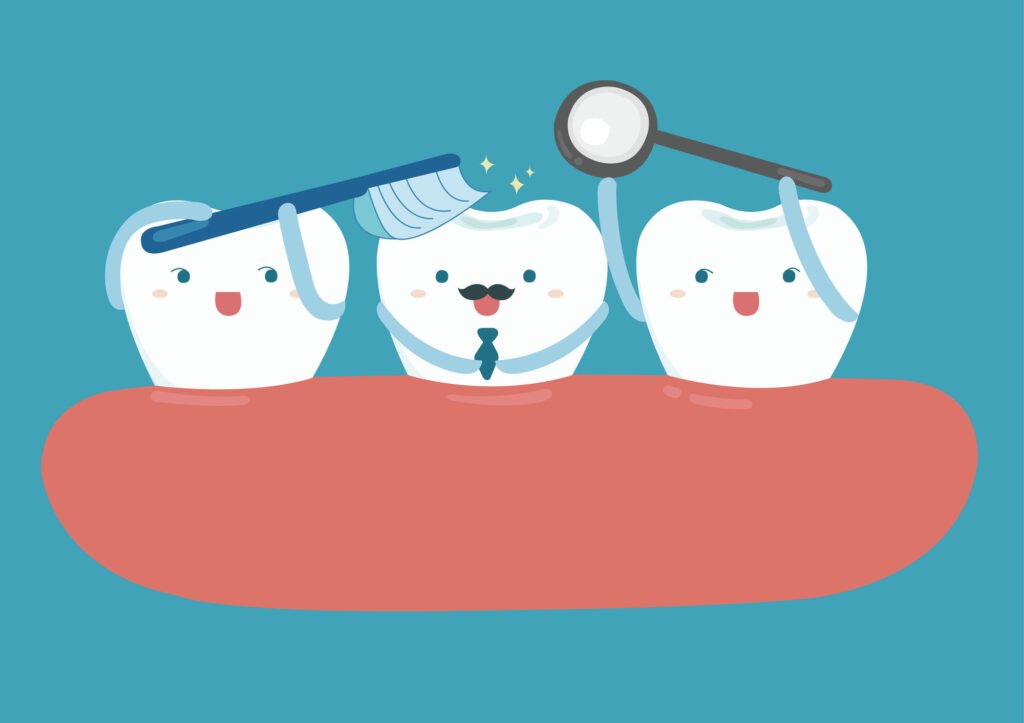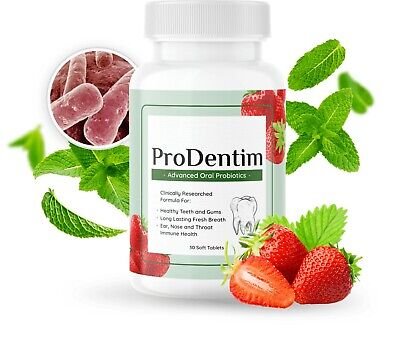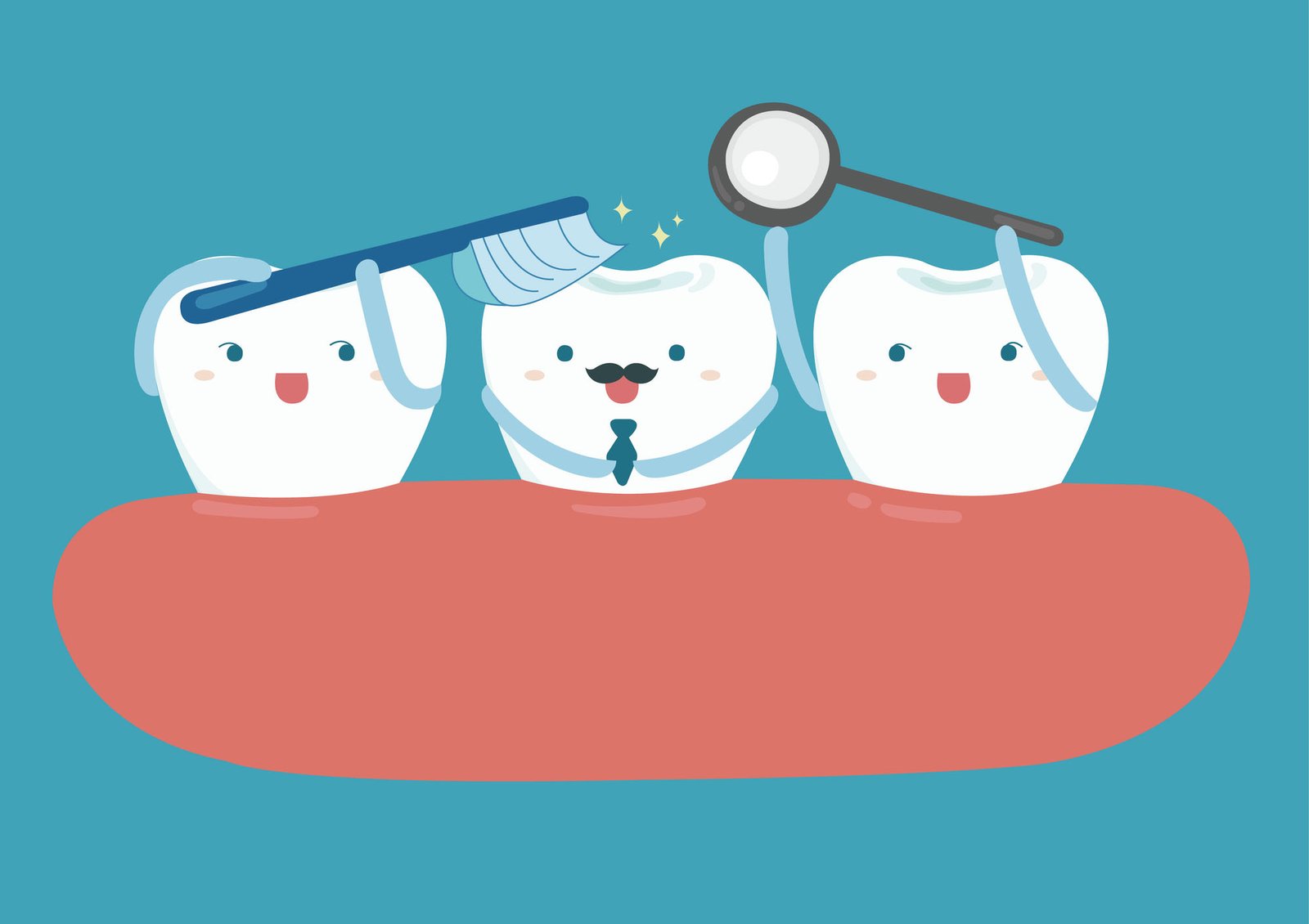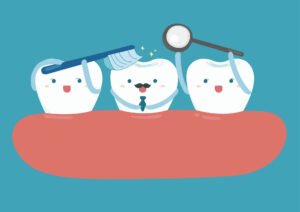
The Importance of Oral Health and How to Maintain It
Oral health is a vital aspect of overall wellness. Good oral hygiene goes beyond a bright smile; it impacts your general health, including cardiovascular and respiratory well-being. Bacteria from oral infections can enter the bloodstream, affecting other parts of the body. Thus, maintaining oral health is essential not just for teeth and gums but for the whole body.
1. Daily Hygiene Practices
The foundation of oral health starts with daily brushing and flossing. Brushing twice a day with fluoride toothpaste removes plaque—a sticky film of bacteria that can lead to cavities and gum disease if not regularly removed. Flossing once a day helps reach areas between teeth where a brush cannot. Don’t forget to replace your toothbrush every three to four months for maximum effectiveness.
2. Regular Dental Check-ups
Professional cleanings and dental exams are crucial. Dentists can spot issues like cavities, gum disease, and early signs of other health conditions. Regular visits allow for prompt treatment, which can prevent minor issues from becoming serious problems.
3. Healthy Diet for Strong Teeth
Eating a balanced diet rich in vitamins and minerals supports strong teeth and gums. Foods high in calcium, such as dairy products and leafy greens, strengthen enamel, while vitamin C from fruits and vegetables promotes gum health. Avoid sugary foods and drinks, as they feed harmful bacteria in the mouth, leading to tooth decay.
4. Oral Health Supplements
Supplements like calcium, vitamin D, and probiotics can aid in oral health. Calcium and vitamin D work together to keep teeth strong and resilient, while probiotics support a healthy oral microbiome, helping balance bacteria to reduce plaque and gum inflammation.
5. Avoid Tobacco and Limit Alcohol
Tobacco use is a major risk factor for gum disease, tooth decay, and oral cancer. Alcohol, particularly sugary drinks, can contribute to erosion and decay. Reducing or eliminating these habits can significantly improve your oral health.
In summary, good oral health practices can lead to a healthier, more confident smile and play an essential role in overall health. With daily care, a nutritious diet, regular dental visits, and potential supplements, you can ensure a bright and healthy future for your teeth and gums.
Top Oral health supplement
ProDentim is unlike anything you’ve ever tried or experienced in your life before.
It’s the only product in the world with a unique blend of 3.5 billion probiotics and nutrients, specially designed to repopulate your mouth with good bacteria.

ProDentim 3.5 billions of probiotics, along with 3 unique ingredients that are clinically
proven to support the health of your teeth and gums
ProDentim: A Comprehensive Guide to the Dental Probiotic Revolution
Oral health is often a reflection of overall wellness, and with increased awareness of the connection between oral and systemic health, people are exploring new ways to care for their teeth and gums. Among these innovations, ProDentim, a dental probiotic supplement, has gained significant attention. Designed to support a balanced oral microbiome, ProDentim introduces beneficial bacteria to the mouth, helping maintain healthy gums, fresh breath, and a resilient oral environment.
This article will delve into what ProDentim is, how it works, its benefits, and why probiotics are becoming essential in dental care.
What is ProDentim?
ProDentim is a specially formulated oral probiotic supplement created to promote a healthier balance of bacteria in the mouth. While probiotics are commonly associated with digestive health, research has shown that certain strains of probiotics can also support the oral environment, impacting gum health, reducing bad breath, and helping prevent tooth decay.
The product combines beneficial bacteria with nutrients that support oral health. By introducing “good” bacteria, ProDentim aims to maintain a healthier balance of microorganisms in the mouth, counteracting the effects of harmful bacteria often linked to cavities, gum disease, and bad breath.
Why Focus on the Oral Microbiome?
The mouth hosts a vast number of bacteria, both helpful and harmful. A balanced oral microbiome can prevent the overgrowth of harmful bacteria, which may contribute to issues like plaque, tartar buildup, gum inflammation, and tooth decay. A disruption in this balance can lead to an increase in “bad” bacteria, creating an environment conducive to cavities and gum disease.
Poor oral health can have ripple effects throughout the body, as bacteria from infections in the mouth can enter the bloodstream, potentially impacting heart health and even respiratory health. Therefore, a balanced oral microbiome is increasingly recognized as critical not just for dental hygiene but for overall health.
Key Ingredients in ProDentim
ProDentim contains a blend of probiotic strains, vitamins, and minerals that work together to promote oral health. Some of its main ingredients include:
Lactobacillus reuteri – This strain has been shown to reduce inflammation and support gum health. It may help prevent the growth of harmful bacteria that lead to plaque buildup and gum disease.
Lactobacillus paracasei – Known for its ability to support dental health, this strain helps keep the gums healthy and reduces the chance of inflammation. It’s also effective in maintaining fresh breath.
Bifidobacterium lactis BL-04 – A popular strain for immune support, it’s beneficial for oral health as well. It supports a balanced oral microbiome, helping to reduce the incidence of bad breath and gum inflammation.
Inulin – This natural fiber acts as a prebiotic, providing nourishment for the probiotics in ProDentim. Inulin also helps reduce the growth of odor-causing bacteria.
Peppermint – Besides its refreshing taste, peppermint contains natural compounds that help freshen breath and support gum health.
Calcium and Vitamin D3 – Essential for dental health, calcium and vitamin D3 work to strengthen teeth and support gum integrity, reducing the risk of decay.
Benefits of ProDentim
ProDentim provides a range of benefits for oral health:
Reduced Plaque and Tartar – The probiotics in ProDentim help prevent the buildup of harmful bacteria, leading to less plaque and tartar.
Improved Gum Health – By reducing inflammation and promoting a healthy microbiome, ProDentim supports gum tissue and can reduce the risk of gum disease.
Fresh Breath – Certain bacteria cause bad breath; ProDentim’s beneficial bacteria help suppress these, providing long-lasting fresh breath.
Cavity Prevention – Probiotics in ProDentim may reduce the acidity in the mouth, which helps protect enamel and reduce the risk of cavities.
Boosted Immune Function – Since the mouth is a key entry point for bacteria, a healthier oral microbiome can help support the body’s immune defense.
Enhanced Overall Health – By supporting oral health, ProDentim may contribute to better cardiovascular health and reduced risk of systemic inflammation.
How Does ProDentim Work?
ProDentim’s mechanism of action is based on restoring balance to the oral microbiome. The probiotics in ProDentim colonize the mouth, outcompeting harmful bacteria and reducing their impact. This leads to less plaque and reduces the risk of gum inflammation, both of which are essential for a healthy oral environment.
The prebiotic component, Inulin, acts as food for the probiotics, helping them thrive and maintain their presence in the mouth. As these beneficial bacteria work, they create an environment where harmful bacteria struggle to survive, reducing plaque and protecting the teeth from decay.
How to Use ProDentim
ProDentim is typically available in the form of chewable tablets or lozenges. The recommended dosage is generally one tablet per day, but it’s always best to follow the manufacturer’s instructions or consult with a healthcare provider before starting a new supplement.
To get the most from ProDentim, it’s advised to chew the tablet thoroughly so that the probiotics can be evenly distributed in the mouth. Taking ProDentim consistently will provide the best results.
Who Should Consider Using ProDentim?
ProDentim is suitable for anyone looking to improve their oral health, particularly those with concerns about gum health, chronic bad breath, or plaque buildup. Individuals with a history of gum disease or tooth decay may also benefit from ProDentim as an additional measure alongside traditional oral hygiene practices.
However, pregnant or nursing women, as well as individuals with underlying health conditions, should consult a healthcare professional before adding ProDentim or any new supplement to their routine.
Potential Side Effects
Probiotics are generally well-tolerated, but some people may experience mild side effects such as bloating or upset stomach when first introducing them into their diet. These symptoms usually subside as the body adjusts. If any severe side effects occur, it’s best to discontinue use and consult a healthcare provider.
Final Thoughts: Is ProDentim Worth It?
ProDentim offers a novel approach to oral health by focusing on the oral microbiome. This supplement can be an effective addition to daily dental hygiene, providing support for gum health, reducing plaque, and keeping breath fresh. While it doesn’t replace brushing and flossing, ProDentim may help fill in the gaps and offer additional benefits that traditional oral care might miss.
By investing in products like ProDentim, individuals can take a proactive approach to their oral and overall health, leveraging the power of probiotics to maintain a balanced and resilient oral environment.
Oral Health Probiotics: A New Frontier in Dental Care
Oral health probiotics are a rising trend in dental care, focusing on maintaining a healthy balance of bacteria in the mouth. While we often associate probiotics with gut health, research shows that these beneficial bacteria can also play a vital role in preventing oral issues like bad breath, gum disease, and tooth decay.
How Do Oral Probiotics Work?
The mouth hosts both harmful and beneficial bacteria. Oral health probiotics introduce “good” bacteria, which help balance the microbiome and inhibit the growth of harmful bacteria. By creating a healthier environment in the mouth, these probiotics reduce plaque buildup, support gum health, and improve breath freshness.
Key Benefits of Oral Health Probiotics
- Reduces Plaque: Probiotics prevent harmful bacteria from sticking to teeth, helping reduce plaque buildup.
- Supports Gum Health: Certain strains can reduce gum inflammation and decrease the risk of gingivitis.
- Freshens Breath: Probiotics suppress odor-causing bacteria, leading to longer-lasting fresh breath.
- Cavity Prevention: A balanced microbiome helps reduce acidity in the mouth, protecting enamel and preventing decay.
Types of Oral Probiotics
Common strains include Lactobacillus reuteri, Lactobacillus paracasei, and Bifidobacterium lactis. These strains are often found in probiotic lozenges or chewable tablets that allow the bacteria to spread throughout the mouth.
Incorporating Probiotics into Your Routine
Using an oral probiotic can be as simple as taking a daily chewable tablet. It’s best used alongside regular brushing, flossing, and professional dental care. By incorporating probiotics, you’re adding a powerful ally to your dental hygiene routine, helping you maintain a balanced oral environment and a healthier smile.
Top Oral Health Probiotics

NatureWise Oral Probiotics for Teeth & Gums & Fresh Breath* - Chewable Probiotic - Non-GMO Sugar-Free Mint Tablet - Dental Probiotic for Kids & Adults w/ BLIS K12 & M18 - 50 Count[50-Day Supply]
What Are Oral Health Probiotics?
Oral health probiotics are strains of beneficial bacteria specifically formulated to improve the bacterial balance in the mouth. The mouth hosts a wide variety of bacteria, some beneficial and some potentially harmful. When harmful bacteria dominate, it can lead to issues like bad breath, plaque buildup, gum inflammation, and tooth decay. Oral probiotics aim to restore a healthier balance by introducing “good” bacteria, which crowd out the harmful bacteria.
These probiotics are commonly available as chewable tablets or lozenges, allowing the bacteria to spread throughout the mouth, where they can positively affect teeth, gums, and overall oral health.
Why Focus on the Oral Microbiome?
The oral microbiome plays a crucial role in maintaining oral health. This delicate ecosystem of bacteria and microorganisms influences not only our teeth and gums but also our overall health. When the microbiome is balanced, it prevents overgrowth of harmful bacteria. However, factors like diet, stress, and oral hygiene habits can disrupt this balance, allowing harmful bacteria to proliferate. When harmful bacteria dominate, the resulting issues can go beyond cavities and gum disease—oral infections can potentially lead to systemic health issues, including cardiovascular problems.
Maintaining a balanced oral microbiome is therefore essential, and oral probiotics offer a targeted approach to support this balance.
How Oral Probiotics Work
Oral probiotics work by introducing beneficial bacterial strains into the mouth, creating a favorable environment that discourages harmful bacteria. These beneficial bacteria can do several things:
Crowd Out Harmful Bacteria: By occupying spaces where harmful bacteria might settle, probiotics create a less hospitable environment for bacteria linked to oral health issues.
Reduce Acidity: Many oral probiotics help neutralize the pH levels in the mouth, reducing the acidic environment that harmful bacteria thrive in. This is particularly important for protecting enamel, which can erode in an acidic environment.
Strengthen Immune Response: Probiotics can help bolster the body’s natural immune response in the mouth, creating stronger defenses against infection and inflammation.
Reduce Inflammation: Certain probiotic strains have anti-inflammatory properties that can benefit the gums, reducing the risk of gingivitis and other gum diseases.
Key Benefits of Oral Health Probiotics
Adding probiotics to an oral care routine can offer several key benefits, which go beyond what traditional dental hygiene practices achieve:
Improved Gum Health: Probiotics help reduce inflammation in the gums, which is crucial in preventing gingivitis and periodontitis. These conditions occur when harmful bacteria invade the gums, causing irritation and, in severe cases, damage to the bone supporting the teeth.
Reduced Plaque and Tartar: Probiotics inhibit the growth of plaque-forming bacteria, reducing the buildup of plaque and tartar on teeth. This can lead to a cleaner and healthier mouth with less risk of cavities and gum disease.
Fresh Breath: Bad breath is often caused by an overgrowth of certain bacteria that release sulfur compounds. Probiotics work to suppress these odor-causing bacteria, leading to fresher breath that lasts longer.
Protection Against Tooth Decay: Some strains of probiotics help lower the pH levels in the mouth, reducing acidity and thereby protecting tooth enamel from decay.
Enhanced Overall Health: Oral infections can have repercussions beyond the mouth, affecting cardiovascular and even respiratory health. By reducing harmful bacteria, probiotics may contribute to improved overall health.
Common Probiotic Strains for Oral Health
Not all probiotics are the same, and specific strains are known to benefit oral health. Here are a few of the most common:
Lactobacillus reuteri: This strain is known for its anti-inflammatory properties, which can support gum health and reduce plaque. It also helps to balance the oral microbiome, preventing the overgrowth of harmful bacteria.
Lactobacillus paracasei: This probiotic is effective in improving gum health and reducing inflammation, making it useful for people prone to gum disease.
Streptococcus salivarius K12 and M18: These strains have been studied for their ability to combat bad breath and reduce plaque formation. They produce bacteriocins, natural antimicrobial substances that prevent the growth of harmful bacteria.
Bifidobacterium lactis BL-04: Often used for both oral and immune support, this strain has shown potential in reducing gum inflammation and maintaining fresh breath.
Streptococcus salivarius K12: Known to support fresh breath, this strain can help reduce the number of odor-causing bacteria in the mouth.
How to Incorporate Oral Health Probiotics into Your Routine
Using oral probiotics is simple, and they can be easily added to an existing dental care routine. Here’s how to start:
Choose the Right Format: Oral probiotics are available in chewable tablets, lozenges, and powders. Chewables and lozenges are often preferred as they allow the probiotics to disperse more effectively throughout the mouth.
Daily Consistency: For optimal results, use the probiotic daily. Consistency is key in allowing the good bacteria to establish themselves in the oral microbiome.
Combine with Regular Dental Hygiene: Oral probiotics are not a substitute for brushing, flossing, or regular dental visits. Instead, they complement these practices, enhancing the health of the oral environment.
Take at the Right Time: Many people prefer to take oral probiotics after brushing their teeth at night, giving the bacteria time to settle and balance the microbiome overnight.
Who Should Consider Oral Health Probiotics?
Oral probiotics are beneficial for a wide range of individuals, especially those facing specific oral health challenges:
- People Prone to Gum Disease: Individuals with a history of gum disease may benefit from the anti-inflammatory properties of probiotics.
- Those with Bad Breath: Probiotics can help reduce odor-causing bacteria, making them an effective option for those struggling with chronic bad breath.
- Individuals Prone to Cavities: Probiotics may reduce acidity in the mouth, making it harder for cavity-causing bacteria to thrive.
- Anyone Interested in Preventative Care: Oral probiotics can be a great addition for people looking to prevent issues rather than just address them after they arise.
However, people with compromised immune systems or underlying health conditions should consult a healthcare provider before starting any new supplement, including oral probiotics.
Potential Side Effects of Oral Probiotics
Oral probiotics are generally safe, but some individuals may experience mild side effects, especially when starting out. Common side effects include:
- Bloating or Digestive Upset: Although less common with oral probiotics than gut probiotics, some people may still experience mild bloating or stomach discomfort.
- Changes in Taste: Some individuals report a slight change in taste initially, but this usually fades as the body adjusts.
If any severe reactions occur, it’s best to discontinue use and consult a healthcare provider.
Conclusion: The Role of Probiotics in Modern Dental Care
Oral health probiotics represent an innovative approach to dental care, focusing on maintaining a balanced microbiome to support gum health, prevent cavities, and freshen breath. While they are not a replacement for traditional oral hygiene practices, they offer a powerful complementary tool to boost oral health.
By choosing the right strains and incorporating probiotics into a consistent dental routine, individuals can enjoy a healthier oral environment and contribute to their overall health. Whether you’re dealing with specific oral health issues or simply looking for preventive care, oral probiotics can be a valuable addition to your daily routine, helping you achieve a cleaner, fresher, and more resilient smile.



